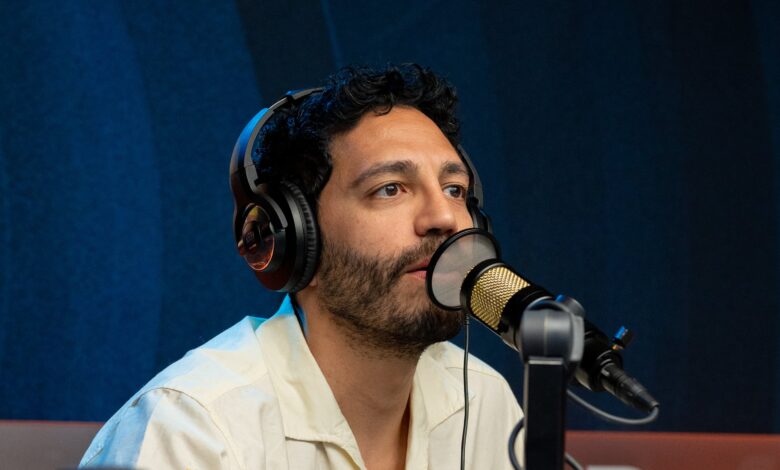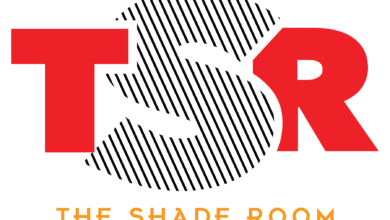Navigating White Hollywood and the Pressure of Code-Switching

:upscale()/2024/09/04/733/n/1922283/tmp_JAg93R_c6d87fb6d9dc2237_DSC_5688.jpg)
:upscale()/2024/09/04/733/n/1922283/tmp_JAg93R_c6d87fb6d9dc2237_DSC_5688.jpg)
I make my living acting in the machine called Hollywood — an industry that commodifies me but not for me. An industry where if I use my hands too much in front of the camera, the director will seriously shout, “Don’t use too many ethnic hands!” “Empty hands, Chris, empty hands,” I whispered to myself while smiling.
By the way, that’s a true story.
The nature of what I do is to put myself in spaces where I have to be chosen, where I have to be chosen as worthy enough to show this. A big part of it, beyond acting ability, is whether I am physically and aesthetically attractive, and attractive enough to a certain look. When you make a living off your desirability, is the power of your body ever just yours? My body has become an object of desire by whiteness, and as long as the main decision makers and check-signers in Hollywood are white, I have to be desired by them and for them.
This is why I always say that it’s nice to get fat checks (I have to pay rent), but nothing changes until I and people who look like me sign them. This, I think, is the downside of being seen as worthless. Because if I’m not wanted in some way, then I’m worthless. And I fear that if I’m too different from what they’ve deemed acceptable, I might lose whatever status I’ve worked so hard to achieve. I might not survive.
I made a film about this for The New York Times in 2020.. The film is about the paradox of “making it” in Hollywood: to make it, you have to stand out from the crowd while blending in with white people. You have to strive to be yourself while blending in. And if you aspire to be one of the leading men you saw on TV as a kid, you better look like one. Step one: tame those curls.
Here we are in 2020—whispers of change are everywhere. With the George Floyd protests, everyone seems to have gotten the message: there’s a problem, and the old ways aren’t working anymore. Companies and Hollywood started talking about diversity and hiring DEI professionals, and guess what—it didn’t do much.
Despite much discussion, progress has been modest. According to a 2020 Pew Research report, Latinos accounted for half of the U.S. population growth between 2010 and 2019 and accounted for 18 percent of the population (This number has increased.) When will we see the diversity of our country reflected on screen?
I guess until that happens, we’re forced to conform to their model. I’d love to tell you that I’m 100 percent done caring what they think, but the itch to wonder if I’m physically capable of code-switching is always there. I was a regular cast member on a network television show, a difficult feat for a Dominican, Colombian Brown from Queens, and yet, in my off-duty moments, I question my body against the system. I wonder if I should have taken on all the drug dealer, criminal, daytime actor roles that are still so prominent on our screens.
We live in a world where cultures are constantly asked to give up parts of themselves in order to move forward. This isn’t news, but it’s worth repeating. Black and Latino actors are constantly being asked to change themselves.
This is our fight – the fight to love and be ourselves.
This is our fight — a fight to love and be ourselves. We fight to love and appreciate our curls, our skin color, and our ethnicities in a world that sells us the idea that just being ourselves is not enough. It is a world that sells us NoseSecret ToolOften advertised as “non-surgical cosmetic surgery,” this is a plastic tube that you insert yourself and squeeze into your nose to create a narrower, thinner, more pointed shape. At just $25, this is a steal!
We see people who self-harm as a danger to themselves and to society. We see it as a crime. But what about self-hatred? Who will protect us from all the pretense we put on to be seen by others?
When I told my dad that I wanted to do theater for a living, that I wanted to be an actor, that I wanted to go to Hollywood, he said, “It’s going to be hard, but try. Fake it. Fake it until you make it.”
I faked it. But at what cost? I cut my hair short and got a nose job, which the first agent told me to do. And it worked. I got more work. That’s the sad part about it all. What bothers me is when I still hear white actors say things like, “You’re so lucky. You’re Latino, everyone wants you right now. I’m just white. I’ve got nothing.” Or the guy I bought a piano bench from off Craigslist who said, “It’s great that they’re looking for more minorities, but I can’t get any roles right now, you know?”
I took a screenwriting class, and what I learned was somewhat discouraging. A show’s longevity is built on the idea that its characters can never really change. For the most part, the main characters have to sabotage themselves and can never really grow because then the show will change. Executives don’t like change. This is what we’re hammering into people’s brains—that we’re supposed to be stuck in cycles. That we’re supposed to be stuck in the same illusions, bad habits, old stories, old clichés, old abuses, old dogmas, old oppressions, and that’s okay. But it’s not.
We have to start asking ourselves: What images and stories have been drilled into our minds about race and humanity, rights and justice? What stories have we been fed since the day we were born? For too long, Hollywood has denied any depth, authenticity, and meaning to people of color because the only way you make a thousand movies a year is if you have a certain level of automation, and stereotypes are part of that automation. Think about what would happen to the industry if it actually produced movies that were nuanced, complex, and honest.
Imagine if every discussion started with: “Does this story help bring humanity into that space? Does this story marginalize an already marginalized community? Is this story true? Does this person have to be white? Does this story represent society, race, and class in an honest way? Does this story help us see and imagine a new, more cooperative, and loving world?”
This re-enactment has to start behind the camera first because we can’t tell stories authentically without being honest about who’s telling them. Being up front doesn’t change who’s signing the check.
I need Hollywood to make it normal and common, not extraordinary. I want to see a Brown “When Harry Met Sally,” or an Afro-Dominican futuristic sci-fi with bachata music, a comedy about an Indian and a Puerto Rican friendship, two second-generation South Asian kids saving the planet, a romantic drama about two Cambodian-American kids in college, and all Brown leads is just hanging out and talking and not making the whole thing about race. Imagine if it was just normal, not special, not a big deal, not a reason to make the movie—it just was.
William Blake called imagination “divine vision.” It includes all the senses, it includes everything: body, speech, and mind. I believe in the power of media to begin to show me something divinely different, so that we can begin to imagine a new future. Television was once a sign of everything that wanted to erase me, and now I’m a regular on a Fox sitcom called “Call me Kat“—curly hair and all. Being on TV, a medium I watched with reverence as a child, felt amazing. Though I had to keep asking myself: Was I just a guest who could be uninvited as quickly as I was brought in? Or was I an equal?
My goal has always been to use Hollywood as a vehicle to get to a place where I can create the art I want to create, say the things I want to say, and hopefully help uplift other people in telling their stories. It’s great to get a check, but the real power is in the ability to sign those checks, and nothing will change until the people signing the checks start looking a lot different, and a little less like old, straight, white men.
The point isn’t to check boxes and make sure people of color are chosen. The point is to honor stories that allow these people to be generous and worthy of being more than just a vehicle for the petty white narrative.
The point isn’t to check boxes and make sure people of color are chosen. The point is to honor stories that allow these people to be generous and worthy rather than just a vehicle for the petty white narrative. If we look beyond checking boxes and actually start telling stories that represent culture, we can begin to see that.
Today, my relationship with transness has evolved significantly since that 2020 video. I’ve made a conscious decision to accept and be comfortable with the natural texture of my curly hair without regret. That is, I chose and still choose to be myself. I need reminders of this, but that’s where my boundaries come home. If I change, it’s because a role that truly represents society requires me to — not because some old storyline requires another reformed thug.
To my fellow Latinos and people of color in Hollywood: speak up and insist on the boundaries and representation you want to see. Create your own art and tell your own stories. Until the lion learns to write, every story will glorify the hunter. This is why lions must write.
And try not to just talk about supporting each other and breaking down barriers; actually do (know who you are). Just because there are Brown/Black people in the room doesn’t mean we can’t perpetuate harmful systems of power, or that we’re incapable of exclusion. Are we committed to fighting racism in every space, no matter how uncomfortable it makes us? By lifting each other up and growing the people who sign the checks, we can create a more inclusive and authentic representation of ourselves. We can pave the way for future generations to see themselves on screen without compromising who they are. And we all deserve a space to belong.
The book of our humanity is not a fixed text. It is flowing, it is fluid, it is expanding, we are shaping it, right here, right now.
Christopher Rivas is the author of “Brown Enough,” an exploration of what it means to be brown in a black/white world. He is also the host of two podcasts: “Brown Enough” and “Rubirosa.” On screen, Christopher is known for his work on the Fox series “Call Me Kat,” opposite Mayim Bialik. His latest book, “You’re a Good Swimmer,” tells a fascinating journey of conception that is gender-neutral and all-encompassing of family dynamics.




